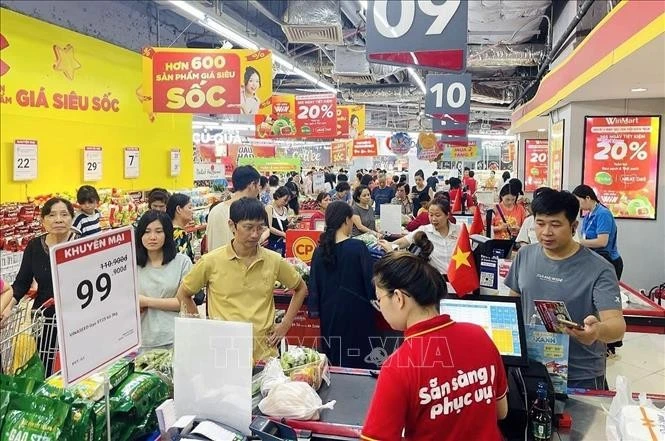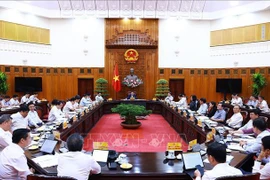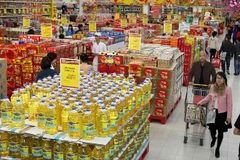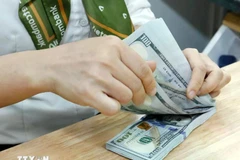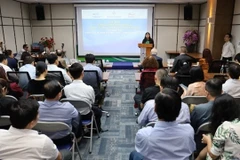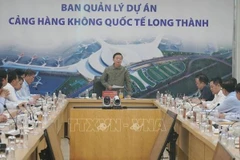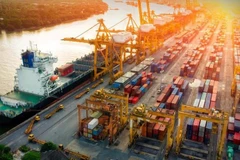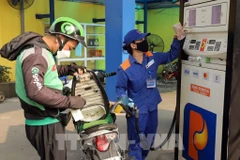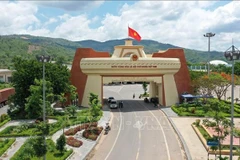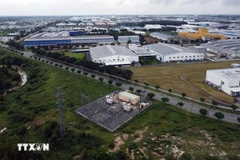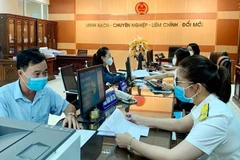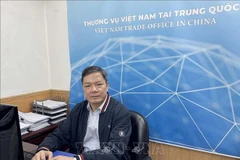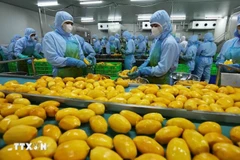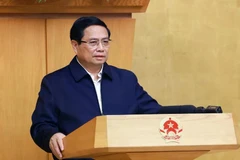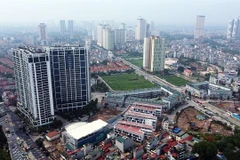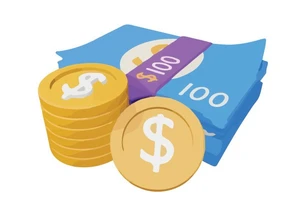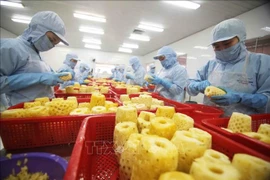Hanoi (VNA) – Vietnam’s inflation in 2025 is projected to remain within a manageable range of 3% to 4.5%, in line with the National Assembly’s goal to keep it around 4.5%, matching expert forecasts, heard a seminar held in Hanoi on January 9.
Dr. Nguyen Duc Do, Vice Director of the Institute of Economics and Finance under the Academy of Finance, said that inflation in 2025 will be influenced by both global and domestic factors. Internationally, the global economy is expected to grow at a steady pace of 3.2%, matching the growth rate of 2024. Meanwhile, commodity prices, including oil and raw materials, are anticipated to slightly decline, which could ease inflationary pressures.
Domestically, Vietnam's stable monetary policy and exchange rates are key to keeping inflation under control. Do pointed out that the country has maintained inflation below 4% for the past decade, and there is optimism that inflation in 2025 will average around 3%, comfortably below the National Assembly’s target range of 4-4.5%.
However, inflation control will not come without challenges. According to the Ministry of Finance’s Price Management Department, global uncertainties, geopolitical tensions, and the potential volatility in currency exchange rates could disrupt price stability.
Vietnam’s inflation in 2025 may face pressure from several sources, including commodity price hikes. Despite these risks, there are mitigating factors, according to department. It predicted that the global reduction in inflation could ease the import pressure on Vietnam, while the country’s strong agricultural sector ensures an abundant supply of food products, stabilising domestic food prices. Additionally, the Government’s efforts to keep tuition fees stable and reduce the value-added tax on certain goods, such as gasoline, will help prevent sharp price hikes in 2025.
Effective measures applied by the Government to rein in inflation over the years will reinforce confidence in the country’s stable economic climate, the department added.
Economist Ngo Tri Long emphasised the importance of controlling essential prices such as fuel, electricity, food, and medicines to avoid sudden price hikes. To mitigate inflationary pressures, he suggested leveraging the national reserves for intervention when necessary and regulating the prices of strategic goods. However, Long cautioned that these measures should be balanced so as not to dampen investment incentives for businesses.
In addition to controlling prices, Long advocated for strengthening domestic production and supply chains. By boosting support for local manufacturers, reducing dependency on imports, and investing in agriculture and industrial processing, Vietnam can ensure a steady supply of goods and minimise the risk of inflation due to exchange rate fluctuations or rising global prices. He acknowledged, however, that building production capacity requires both time and resources.
Long stressed that a coordinated approach to implementing these solutions is crucial for controlling inflation, stabilising the macro-economy, and fostering sustainable economic growth in 2025. While these measures can effectively manage the Consumer Price Index (CPI), they must be carefully executed to avoid putting excessive pressure on businesses and slowing economic growth.
Data from the General Statistics Office (GSO) showed that in 2024, Vietnam’s economy grew by 7.09%, with inflation held to a manageable 3.63%, meeting the National Assembly’s target despite global economic pressures.
Dr. Le Quoc Phuong, former Vice Director of the Industrial and Commercial Information Centre under the Ministry of Industry and Trade, explained that lower global inflation and a stable supply of food products helped Vietnam navigate challenges, maintaining low domestic inflation even with high GDP growth.
Nguyen Thi Oanh, Director of the GSO’s Price Statistics Department, stated that the low inflation rate can be attributed to businesses reducing profits rather than increasing prices in order to remain competitive during challenging economic times.
Oanh highlighted that tax and fee reductions have alleviated pressure on businesses and consumers, contributing to lower inflation. She also referenced the Government's careful management of prices for state-regulated goods and services and flexible monetary policies./.
